|
Bachelor's degree in Biotechnology
Course partially running
|
Bio-reactors (2025/2026)
|
6
|

|
5
|
(Teoria)
|
|
1
|
(Laboratorio)
|
|
Master's degree in Biotechnology for bioresources and sustainable development
|
Biorefineries (2025/2026)
|
6
|

|
6
|
|
|
Master's degree in Law for Technologies and Sustainable Innovation
Course partially running
|
Biotechnological innovations for sustainable development (2025/2026)
|
6
|

|
1
|
|
|
Bachelor's degree in Biotechnology
Course partially running
|
Biotechnology for circular bioeconomy (2025/2026)
|
6
|

|
2
|
ELEMENTI DI BIOECONOMIA E POLITICHE
|
|
Master's degree in Biotechnology for bioresources and sustainable development
Course partially running
|
Biological Treatment of Wastewater (2024/2025)
|
6
|

|
5
|
(TEORIA)
|
|
1
|
(ESERCITAZIONI)
|
|
Bachelor's degree in Biotechnology
Course partially running
|
Bio-reactors (2024/2025)
|
6
|

|
1
|
(Laboratorio)
|
|
5
|
(Teoria)
|
|
Master's degree in Law for Technologies and Sustainable Innovation
Course partially running
|
Biotechnological innovations for sustainable development (2024/2025)
|
6
|

|
1
|
|
|
Bachelor's degree in Biotechnology
Course partially running
|
Biotechnology for circular bioeconomy (2024/2025)
|
6
|

|
2
|
ELEMENTI DI BIOECONOMIA E POLITICHE
|
|
Master's degree in Biotechnology for bioresources and sustainable development
Course partially running
|
Biological Treatment of Wastewater (2023/2024)
|
6
|

|
1
|
(ESERCITAZIONI)
|
|
5
|
(TEORIA)
|
|
Bachelor's degree in Biotechnology
Course partially running
|
Bio-reactors (2023/2024)
|
6
|

|
5
|
(Teoria)
|
|
1
|
(Laboratorio)
|
|
Master's degree in Law for Technologies and Sustainable Innovation
Course partially running
|
Biotechnological innovations for sustainable development (2023/2024)
|
6
|

|
1
|
|
|
Bachelor's degree in Biotechnology
Course partially running
|
Biotechnology for circular bioeconomy (2023/2024)
|
6
|

|
2
|
|
|
Corso di Perfezionamento e aggiornamento professionale in Tutela penale dell'ambiente, del paesaggio e del territorio
|
Inquinamento idrico (2023/2024)
|
1
|

|
0.5
|
(Inquinamento idrico 1)
|
|
Master's degree in Biotechnology for bioresources and sustainable development
Course partially running
|
Biological Treatment of Wastewater (2022/2023)
|
6
|

|
5
|
(TEORIA)
|
|
1
|
(ESERCITAZIONI)
|
|
Bachelor's degree in Biotechnology
Course partially running
|
Bio-reactors (2022/2023)
|
6
|

|
1
|
(Laboratorio)
|
|
5
|
(Teoria)
|
|
Master's degree in Law for Technologies and Sustainable Innovation
Course partially running
|
Biotechnological innovations for sustainable development (2022/2023)
|
6
|

|
1
|
|
|
Bachelor's degree in Biotechnology
Course partially running
|
Biotechnology for circular bioeconomy (2022/2023)
|
6
|

|
2
|
|
|
Master's degree in Biotechnology for bioresources and sustainable development
Course partially running
|
Biological Treatment of Wastewater (2021/2022)
|
6
|

|
6
|
|
|
Bachelor's degree in Biotechnology
Course partially running
|
Bio-reactors (2021/2022)
|
6
|

|
1
|
(Laboratorio)
|
|
5
|
(Teoria)
|
|
Master's degree in Biotechnology for bioresources and sustainable development
Course partially running
|
Biological Treatment of Wastewater (2020/2021)
|
6
|

|
6
|
|
|
Bachelor's degree in Biotechnology
Course partially running
|
Fundamentals of biotechnological processes and plants
(2020/2021)
|
6
|

|
1
|
(laboratorio)
|
|
Bachelor's degree in Biotechnology
Course partially running
|
Fundamentals of environmental biotechnological processes (2020/2021)
|
6
|

|
5
|
(teoria)
|
|
1
|
(laboratorio)
|
|
Master's degree in Biotechnology for bioresources and sustainable development
Course partially running
|
Biological Treatment of Wastewater (2019/2020)
|
6
|

|
6
|
|
|
Bachelor's degree in Biotechnology
Course partially running
|
Fundamentals of biotechnological processes and plants
(2019/2020)
|
6
|

|
1
|
(laboratorio)
|
|
Bachelor's degree in Biotechnology
Course partially running
|
Fundamentals of environmental biotechnological processes (2019/2020)
|
6
|

|
1
|
(laboratorio)
|
|
5
|
(teoria)
|
|
Bachelor's degree in Biotechnology
Course partially running
|
Fundamentals of environmental biotechnological processes (2018/2019)
|
6
|
|
5
|
(teoria)
|
|
1
|
(laboratorio)
|
|
Bachelor's degree in Biotechnology
Course partially running
|
Fundamentals of environmental biotechnological processes (2017/2018)
|
6
|
|
5
|
(teoria)
|
|
1
|
(laboratorio)
|
|
Master's degree in Agri-Food Biotechnology
Course partially running
|
Biological treatments of food-waste (2016/2017)
|
6
|
|
6
|
|
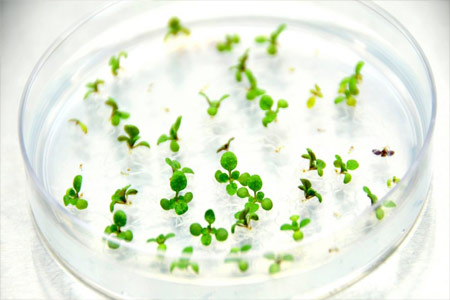
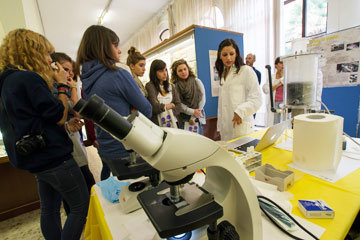
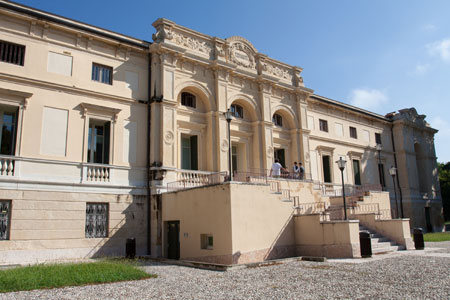



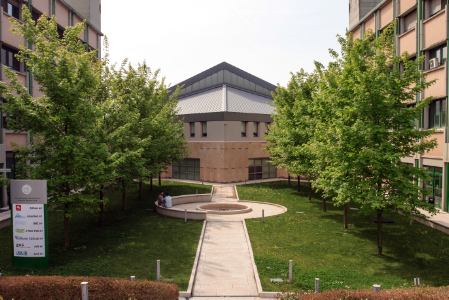
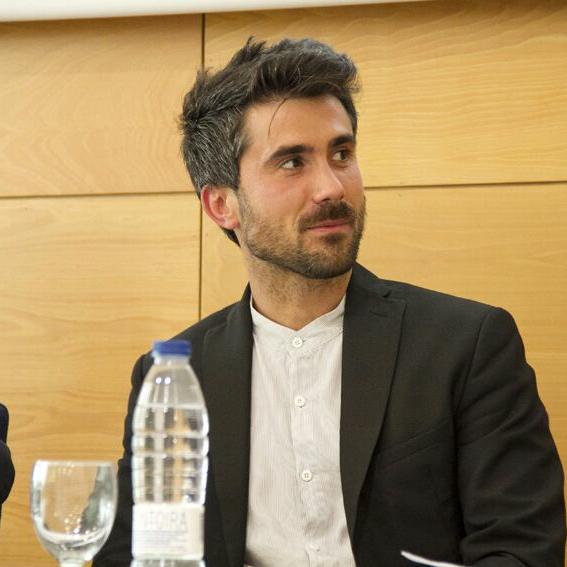
 frison
frison univr
univr
